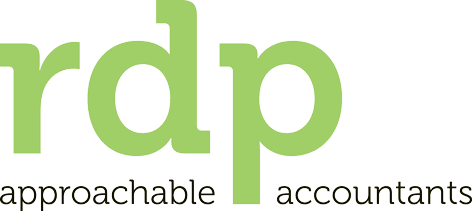By Simon Lasky
•
March 5, 2025
Q: I’ve started a new business this year selling my hand-made craft items. At this stage it’s only earning me a relatively modest income. Up until now my profits are just £600 but I do have a big order that is set to earn me £3,500 in the next two months. I’m slightly confused about what I should be declaring in a tax return. A: Starting a new business brings many questions and complexities around tax. Although you haven't said it for certain, it sounds like you haven't had to file a Self-Assessment Tax Return before. So, to take you through the essentials, based on the information you have provided, this is what you need to know. If you are earning less than £1,000 in a tax year from self-employment, you don't need to submit a tax return and there is no income tax to pay. However, as it sounds like this is a venture you intend to pursue longer term and to grow into a bigger business, you probably will need to eventually. The Self-Assessment deadline that is just elapsing – i.e. January 31, 2025, covered the tax year 2023-24. If you'd made more than £1,000 in profit from self-employment income between April 2023 and April 2024, you'd have needed to declare this to HMRC by the latest deadline. But as you did not, that is not relevant in your case. It sounds like the £600 you earned came between April 2024 and January 2025. If the money you're expecting does come in before April 2025, that means all of the earnings – a total of £4,100 – would then need to be declared for the 2024/25 tax year. The deadline for filing your tax return for 2024/25 will be 31 January 2026. A key detail that you haven't made clear is how much of the £3,500 you're expecting will be profit. If your overall profits for the 2024/25 tax year period remain below the £1,000 threshold or 'trading allowance', as it's also known, then you won't have to declare it to HMRC in January 2026 either. Of course, it's very important to understand how to file your tax return correctly to fully comply with the rules and avoid any penalties. It's also important to completely understand your expenses and other costs that are part of filing the Self-Assessment forms. It's always wise to consult an accountancy professional, especially when you're doing it for the first time. Please contact our team if you'd like further information on how we can help. Q: I recently tied the knot with my long term partner and we’re now in a civil partnership. A friend mentioned that there’s a possible tax relief my partner and I could take advantage of. She is the higher earner, earning £40,000 per year. I earn £11,500. What’s the position? How much relief, if any, can we benefit from? A: Firstly, congratulations on your good news! You are correct that you and your partner now qualify for a tax relief called Marriage Allowance. Civil partnerships are also included within this – despite the somewhat misleading title in this case. The fact you earn £11,500 puts you below the income tax threshold of £12,570 – otherwise known as the Personal Allowance. This is the amount you're allowed to earn in a tax year before paying income tax. Your partner's income being £40,000, with the same Personal Allowance of £12,570, means she has taxable income of £27,430. So that's the total amount you pay tax on as a couple. When you claim Marriage Allowance you can transfer £1,260 of your unused Personal Allowance to her. Your Personal Allowance becomes £11,310 and your partner gets what's known as a 'tax credit' on £1,260. This means you will now pay tax on £190, but she will only pay tax on £26,170 rather than £27,430. So that's a combined £26,360 of taxable income between you. The result is £1,070 less of your combined earnings is taxed. Without Marriage Allowance, you pay nothing and she pays tax on £27,430 at 20% which amounts to £5,486 of tax owed. With Marriage Allowance, you pay a small sum of tax – just £38 but she pays 20% on £26,170 which means the tax she pays has gone down to £5,234. So, when you put the combined figures together (£38 and £5,234), that's £5,272 owed, rather than £5,486. So, ultimately you save £214 in total as a couple. Q: Last year I earned £4,500 approximately from making interest on my savings. I’ve never come close to earning anywhere near that much previously so I’m not sure about the rules. I realise that there are potential tax implications but I’m not sure exactly what I need to do. Can you please explain? A: There are a few things to mention here for yourself and others who want to understand about the tax implications on interest made from savings. Firstly, there's something called the Starting Rate for savings. But it depends on your circumstances – specifically what you are earning – whether you're eligible for it or not. For those of you who are eligible, you can earn up to £5,000 in savings interest and not have to pay tax on it. In your case, we won't be able to say for sure whether this applies or not as we don't know what you currently earn per year – or if you are still in work or retired. Essentially, the higher your income – be that your salary from a job or a pension or something else, the less you are eligible to claim on the Starting Rate. In fact, you will not be eligible for the Starting Rate if your total income per annum is £17,570 or more. But if it is lower, then the maximum is £5,000. And for every £1 of income above your annual Personal Allowance of £12,570, your Starting Rate goes down by £1. For example, say you earn £15,000 per year in terms of a salary. To calculate what your Starting Rate is you'd subtract the Personal Allowance, giving you £2,430. This is the figure by which you would reduce your Starting Rate. So, the left over amount - £2,570 – is the Starting Rate you qualify for. In your case, therefore, having earned £4,500 in savings interest, you are over the limit. So, you'd have £1,930 in savings interest that you need to pay tax on. However, that is only taking the Starting Rate into account. There's also the Personal Savings Allowance. For basic rate taxpayers that is £1,000. And it can be added to the figure for the Starting Rate for savings. In the scenario outlined above, this extra allowance would reduce the amount of savings interest that you need to pay tax on to £930. As alluded to, we'd need to know more about your personal situation to provide a full and accurate answer on your tax obligations in regard to your question, but please give our team a call and we'd be happy to help.



